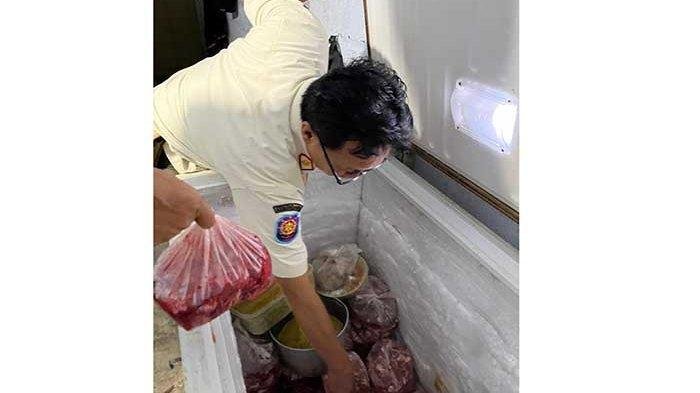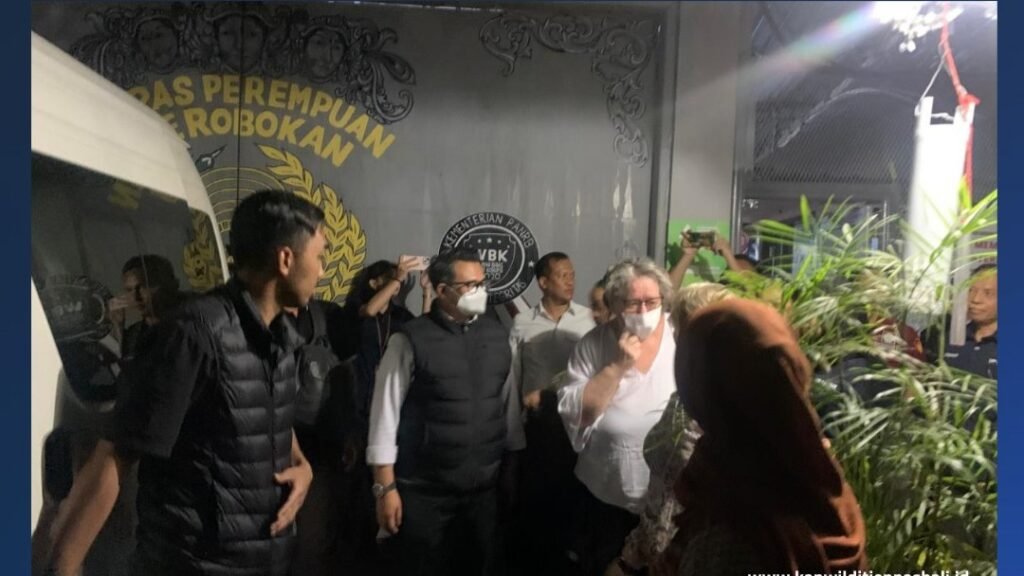
In a decisive move to protect public health and animal welfare, Bali’s Satpol PP (Public Order Agency) recently conducted a major raid, seizing 500 skewers of dog meat satay and 56 kilograms of raw dog meat. This operation sheds light on the persistent issue of the illegal dog meat trade and the efforts to combat it.

The Raid: A Detailed Account
On July 24, 2024, Satpol PP officers carried out a raid in the Jembrana and Buleleng regions of Bali. These areas were under surveillance due to reports of illegal dog meat trade. The operation was meticulously planned to ensure compliance with local regulations. The raid resulted in the confiscation of 500 skewers of dog meat satay and 56 kilograms of raw dog meat from three vendors. Despite prior warnings, these vendors continued their illegal activities and now face legal actions, including fines and other penalties designed to deter such practices.
Statements from Animal Welfare Advocates
Dr. Sasa Vernandes from Sintesia Animalia Indonesia, who joined the raid, expressed disappointment that dog meat vendors were still operating despite previous warnings. “I have been involved in educating and guiding dog meat vendors since 2017 and found many vendors who have stopped selling dog meat. Even before the local regulation (Perda) was enacted, the government issued warnings through circular letters and instructions from the Governor of Bali in 2017 and 2019. It’s unfortunate that some vendors ignored these warnings and had to be dealt with under the new regulation,” said Dr. Sasa on Thursday, July 25.
Legal Framework and Challenges
Bali has stringent regulations prohibiting the sale and consumption of dog meat, aimed at safeguarding public health and animal welfare. However, enforcing these laws remains a significant challenge. The vendors involved in the recent raid had been previously warned but continued to violate the regulations, highlighting the difficulties faced by enforcement agencies.
Efforts by Sintesia Animalia Indonesia
Since 2017, Sintesia Animalia Indonesia (formerly Animals International and Bali Animal Defender) has been documenting and educating dog meat vendors. Dr. Sasa’s research revealed that certain communities in Bali are involved in the dog meat trade, with some vendors being migrants. Jovand Imanuel Calvary, Chairman of Sintesia Animalia Indonesia, emphasized that both locals and migrants must respect Bali’s regulations. “Sintesia Animalia Indonesia continues to document vendors and cooperate with Satpol PP Bali to take action against active dog meat vendors, without special consideration whether they are locals or migrants – all are rule breakers,” explained Jovand.
Health Risks and Safety Measures
Consuming dog meat poses serious health risks, including the transmission of zoonotic diseases like rabies. These risks are exacerbated by the often unsanitary conditions under which the meat is processed and sold. The authorities’ actions are part of broader efforts to protect public health by curbing the illegal trade and consumption of dog meat. These measures include regular inspections, public awareness campaigns, and strict enforcement of existing laws.
Animal Welfare and Ethical Concerns
The dog meat trade raises significant ethical issues, particularly regarding the treatment of animals. Animal rights groups have been vocal in their opposition, calling for stricter enforcement of animal welfare laws and increased public awareness about the cruelty involved in this practice. Their efforts have brought attention to the issue and advocated for legislative changes.
Community and Tourist Reactions
The crackdown has elicited mixed reactions from the local community. While some support the authorities’ actions due to health and ethical concerns, others worry about the impact on vendors’ livelihoods. This underscores the need for a balanced approach considering public health and economic factors. Tourists in Bali have largely welcomed the crackdown, citing concerns about public health and animal welfare. Their positive response highlights the importance of maintaining Bali’s reputation as a safe and ethical travel destination.
Broader Context and Future Steps
The dog meat trade has a long history in Indonesia, influenced by cultural and economic factors. Despite efforts to curb the trade, dog meat consumption remains prevalent in certain regions. Understanding this context is crucial for developing effective strategies to address the issue. Jovand noted that Satpol PP and Sintesia Animalia Indonesia have identified 107 dog meat vendor locations in Bali, with over 100 already shut down. “Some locations might not be documented yet, so we need community cooperation to provide accurate information about vendor locations. We often receive unverified reports based on assumptions. It’s essential to include precise information, particularly location coordinates,” he added.
Final Thoughts
The recent raid by Satpol PP in Bali marks a significant step towards eradicating the illegal dog meat trade. By enforcing laws, addressing public health concerns, and promoting animal welfare, Bali can set a precedent for other regions in Indonesia. The path forward requires continued vigilance, collaboration, and a commitment to ethical practices.









